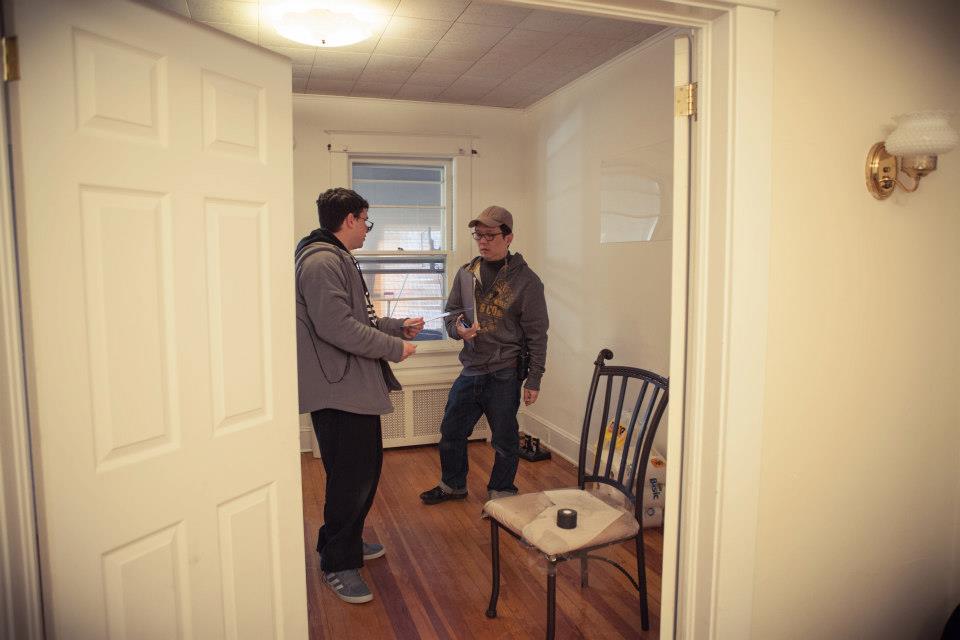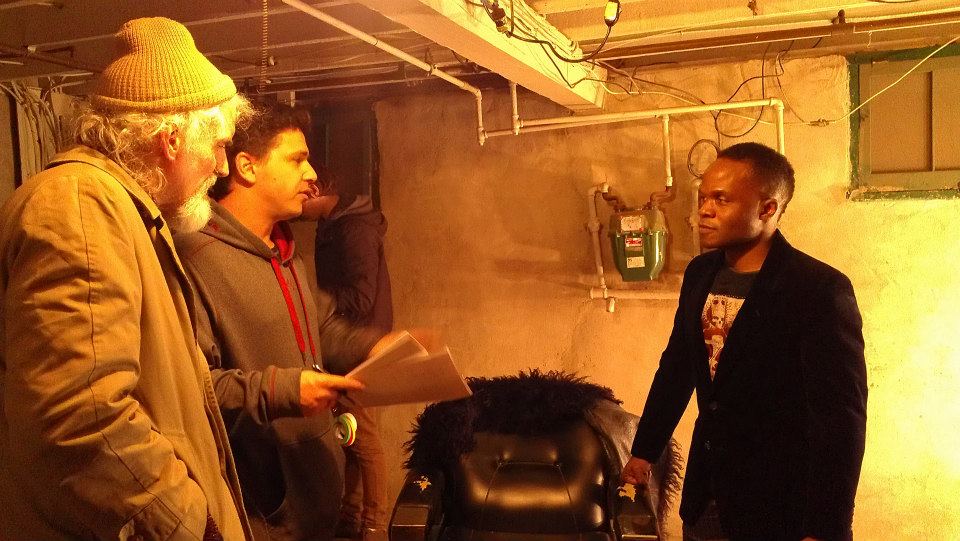As an aspiring independent filmmaker, one of the keys to a good movie is the acting performances.
There are 3 keys I have found to getting a better performance each and everytime. I would say, that acting is probably the biggest judge of a director’s ability in my opinion. Those decisions, comments, and nuances are subtle, but powerful influences on an overall performance. Like a good football coach, a quality director can help actors ‘play their best’.
On the independent film scene, this can be a bit more challenging. Since pay is usually limited, deferred, or non-existent, scheduling numerous rehearsals can be near impossible. To counter this, I try to have phone and video chat sessions with my cast to go over key points, character development, and wardrobe. However, there is nothing like a live rehearsal. You may only get limited time with key members of your cast, and it is important to make the most of it.
Here’s the three keys that I use to get better performances from my cast.
1. Find a good AD.
For professionals, getting a good Assistant Director (AD) is a no-brainer. But for independent films, this can get buried while looking for a good cast, financing, a DP, and crew. However, for your actor’s sake, this is probably the most important person to have in a production. They run the set, and take care of the cast’s needs. Most importantly, they play the ‘bad guy’ when necessary allowing you to not let that stuff ruin your creative flow with both your cast & crew.
A good AD is essentially the communication bridge between the cast and crew. They are the sounding board for the cast and crew, and the right hand of the director. Having one who can properly run a set, schedule shoots, and play the bad cop when necessary is essential to getting good performances from your cast. They allow the director and the talent to work together solely on the creative. This keeps the relationship fresh on set, and removes any potential distractions caused by dealing with all the other facets of a production.
So even on low budget films, this role is essential to making the most of your talent. Event though they are not directly involved in the performances, they take care of all the external situations allowing you to concentrate on just that.
2. Make the Most of Rehearsal Time
Low budget films mean limited rehearsals and time with your cast. As I mentioned earlier, you can take advantage of technology to counter act this, but the bottom line is you are only going to get so much time with your cast. What’s the most important thing to work on? Character development? Blocking? Timing? All of them?
So little time, and so much to do. Ah, the life of a filmmaker. Here’s how I approach rehearsals.
You have limited time to rehearse and really dive into each and every scene. I try to work on character development through conversation via phone, video chat, or in person. I like to keep that personal between the talent and me. We speak privately about their character, and all of the story that’s not ‘written on the page’, so to speak.
When it comes to rehearsals with multiple cast, that is when I mix in blocking. I will go over the logistics of a scene, and then we will run through the performance. It is here, I will speak privately to actors, or use words that only they will understand to improve their performance. Speaking to actors is an art in and of itself, and I suggest reading Directing Actors, by Judith Weston. It is quite important to undersand that what you say can also ‘ruin’ a performance, rather then improve it.
For example, I never tell an actor something specific I liked or did not like about their performance. The reason is I don’t want them to concentrate on repeating that action or delivery. It must be genuine. Telling an actor, I love how you smiled at the end, only forces them on the next take to make sure they smile at the end. Read that book. It opened up a whole new psychological world to me.
The key during these rehearsals is actually two fold. I will probably not have time to go over every nuance with every character, so I save that for on set. Instead, I concentrate on what inspires each actor and actress. I try to learn more about them as a person, then as their character. This is important, because on set, I may not have time to explain every nuance. I need to know how to get them to achieve their best, and that is what I try to learn at rehearsals. What do they respond to?
Some talent are very submissive, and listen to everything you say. It is these types that you need to inspire to find their own voice for the character. There are other’s that are set on their interpretation of the character, so you have to find ways to open up their mind to other possibilities. Each cast member presents their own challenges, and it is more important to identify this then the nuances for each scene.
The other key for rehearsals has nothing to do with the cast. To me, this is the time to use the cast to try out your ideas. See what is working, and what is not. Identify the beats that are off, and find a way to circumvent them. This is your first opportunity to execute your vision. Be open to adaptation, and input from various perspectives. It is invaluable information to use when it comes time on set.
3. Whisper or Take a Walk.
I like to keep my relationships with each cast member separate. I think its a privilege to work on developing a character with someone and I think it should stay private from the other cast and crew. From pre-production, through the shoot, I try to keep all the talk about the character between me and that cast member.
My reasoning for this is simple. First, it allows the cast member and I to develop a better relationship. We are each privy to knowledge about that character that no one else is. This is something to build on, and come back to, during the stresses of production.
Second, it keeps the other cast on their toes. You run through a scene, and call cut. Everyone wants to know, did you like it? Was it good. Instead of talking to everyone about individual performances, I keep it separate. I will take the cast member I want to work with on the side, or whisper lowly, to give my feedback. This certainly makes them feel better, as no one else is privy to any criticism. It also keeps the other actors focus on their performance, instead of what the other performer is doing.
This may seem subtle, but it is key to the psychology of a set. Every actor needs to have a voice. When grouped together, certain voices may be drowned out. But by keeping each voice separate, it allows them to flourish individually, bringing greater harmony on set overall.
What’s your Style?
I’d love to hear what techniques you use to get better performances, or, if you are an actor, what’s your perspective on getting good direction? Let us know in the comments below.
Recommended Links
- Directing Actors, by Judith Weston
- Cover Photo by Gerald Paguio
If you found this content valuable, please follow me on twitter or like us on facebook to receive future updates!





From my personal experience, I know how important it is to guide actors as a director. I had a privilege to be in both roles although I wouldn’t call myself a director or an actor as these are big words to use for what I did.
As an actor, you don’t see yourself in the camera and unless you have an enormous experience it is really difficult to visualize how your acting looks from this perspective. This is why you need some help from the director. There two sides of the same coin though and an input from an actor could be equally important. For instance, sometimes a dialogue may not flow naturally between actors (I believe this happens mostly to amateur actors) and requires some, usually, minor tweaks that may improve it drastically.
I find that happens with ALL actors. Sometimes, depending on what the talent brings to the table, certain things may have to work them self out. I never try to be tied to anything in a scene except the key concept and point of that scene. The dialogue, setting, and action may all be adjusted if it helps further the scene. I picture it like another draft of my script.
Ive been in the mode to give actors an illusion of freedom. That the third solid take will be theirs to do what they please with. But the illusion I find helps them relax. Third take is either the best or my way of keeping the illusion going as I already got what I want.
Definitely going to use some of what I just read. Definitely got me thinking in some different directions.
Love the concept. Thanks for sharing.